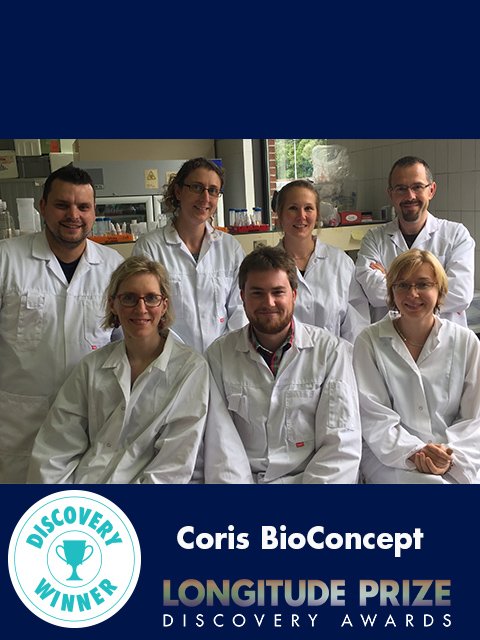This team successfully won a Discovery Award seed-funding grant to help further develop their ideas for their Longitude Prize application and create a diagnostic test that helps solve the problem of global antibiotic resistance. Below we have asked them to explain their test and motivation for applying.
Please describe your test?
Today, when a person is infected with bacteria leading to a severe disease, the only possibility to kill the bacteria is for that person to take antibiotics. Unfortunately, bacteria have developed numerous mechanisms to resist these antibiotics, and now some antibiotics are completely ineffective or resistant. Bacterial resistance to antibiotics can be dangerous and it is of the utmost importance that a doctor knows rapidly what antibiotics will be efficient for their patients. New diagnostic tools are now available to identify if a bacteria is sensitive or resistant to antibiotics that allow the doctor to decide how to treat a patient. The tool we are developing could be used to confirm if a bacteria is resistant or sensitive to a particular class of antibiotics called carbapenems.
Please share a more detailed description of this work from a medical professional’s perspective.
Coris BioConcept is a middle-sized company specialised in developing, manufacturing and marketing rapid diagnostic tests. These tests are based on strip chromatography principle with the use of colloidal gold particles, latex microspheres or fluorescent dyes (ICT). The ICT range allows for detection of infectious diseases including enteric pathogens and respiratory pathogens. A new range of ICT products has been recently developed for detecting carbapenemase-producing Enterobacteriaceae (CPE).
Five major parameters are targeted, i.e. OXA48, KPC, NDM, VIM and IMP. Today OXA48, KPC and NDM are already developed and are clinically validated. These lateral flow assays (OXA-48, KPC & NDM K-SeT) detect specifically both OXA-48-like, KPC and NDM carbapenemases from bacterial colonies with a very simple procedure: one colony is picked up and diluted in a specific buffer before being incubated within the test device for 3 to 15 minutes.
Numerous international publications, from references to routine laboratories, claim these tests perform excellently. Nevertheless, clinicians are always looking for tests that could speed up their decision to treat their patients’ properly and safely. Detecting resistance after an overnight culture is too long to process and in order to reduce the time to result, we have decided to start some improvements on our existing products. Three technical solutions have been considered, including a pre-analytical device for sampling, an accelerated culture and the use of alternative dyes for identifying the signal. These solutions will be tested during the next three months.
Why did you apply and what will the Discovery Award funding be used for in your work?
We applied for the Discovery Awards for several reasons.
- It will help us partially finance the improvements of our present tests in order to shorten the time to result and provide clinicians with a powerful tool for antimicrobial resistance detection, hopefully closer to the patient.
- It will allow us to get involved in a network dealing with antimicrobial resistance with people in the field from different countries.
- It will allow us to improve our knowledge in the field of antibiotic resistance and to improve our technical knowledge in the method to rapidly detect them according to laboratory requirements.
- This award will help in developing at least three technical solutions to improve the speed for the detection of CPE with our current products by working on the sampling device, by using some specific culture media and by using more powerful dyes for increasing the positive signals.
- It will allow us to submit our new test in the competition for the Longitude Prize
What difference will your work make in the long term with regards to antimicrobial diagnostics?
Increasing concern that antibiotic resistance may become the number one cause of death in the middle of the 21st century increases the need for new diagnostic tools not only in clinical diagnostics, but also veterinary diagnostics. Our tests will make a difference because a doctor will be able to identify, in minutes, if a suspected bacteria is resistant or sensitive to some antibiotics and then prescribe proper antibiotherapy. The use of such tests routinely in laboratories or even in doctors offices, directly on crude samples should reduce inappropriate antibiotics use in order to successfully cure an infection, leading to lower the general antimicrobial resistance by reducing the spread of resistant bacteria. Their use in veterinary diagnostics should also help in reducing this spread.
Who is on your team?
Pascal Mertens, PhD
Isabelle Ote, PhD
Nicolas Zeippen, Master
Laurence Denorme, Bachelor
Céline Borlon, PhD
Quentin Gilleman, Master
Caroline Thunissen, Master
If you are interested in collaborating with this team, please email us.

